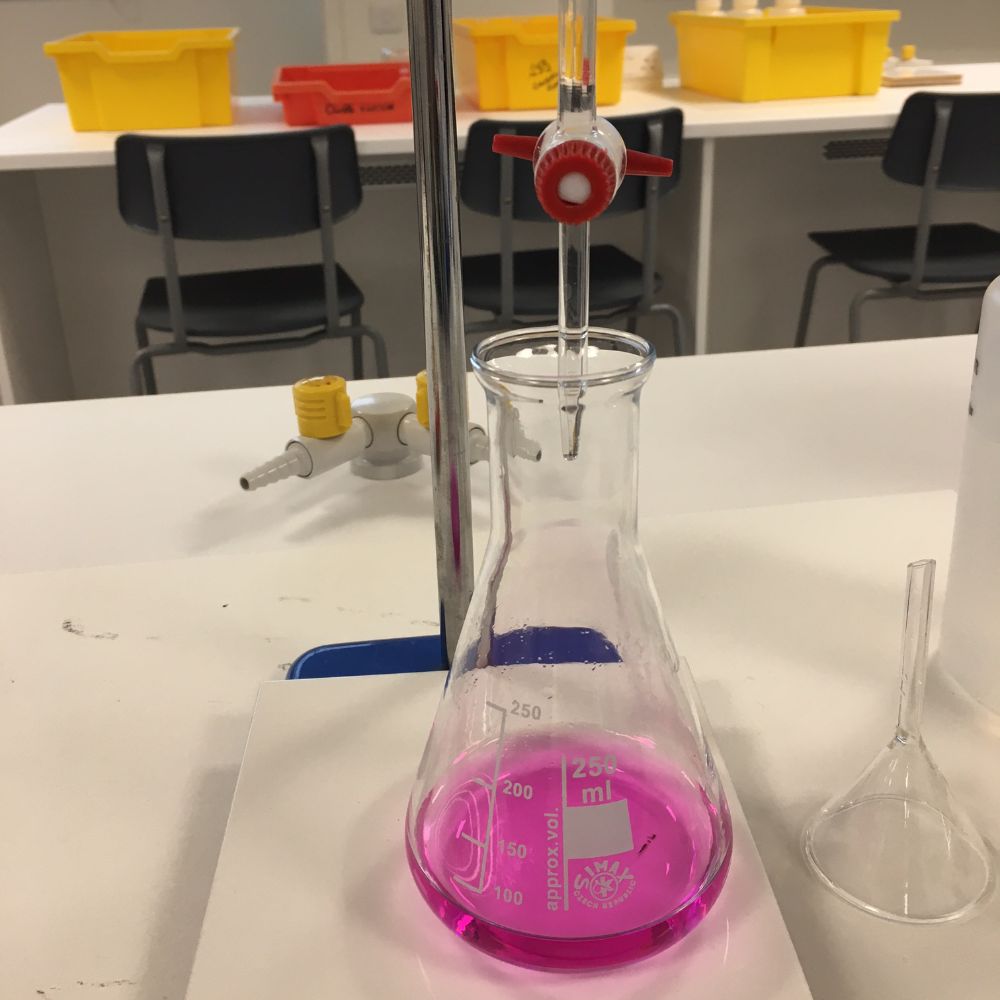
We sat down with Dr Rajeev Shrivastava to find out more about Edge Hill’s new chemistry degrees, designed with employability in mind.

Tell us a little bit about you.
I have been at Edge Hill for over 16 years, where I have been teaching chemistry modules in areas such as biology, biochemistry, pharmacology and nutrition. Chemistry is such an inter-disciplinary subject, as it is applicable in both the physical and the biological sciences.
I have been involved with the implementation of our BSc and MChem Chemistry programmes, which we are excited to introduce for September 2025. My specific research areas of interest are organic and environmental chemistry.
Chemistry is vital in so many aspects of life. This includes food, pharmaceutical, medicines, agriculture, biological sciences, and the environmental sciences. No matter which science degree you study, chemistry will always be involved at some point. It also leads to so many career opportunities and directions.
Why should someone choose Edge Hill University to study chemistry?
.

The programmes are designed with a focus on employability and enhancing your career prospects at the end of the degree. For example, a lot of the modules are designed to include analytical analysis, which is a highly sought after skill. We are constantly updating our programmes so that they are in line with modern and topical areas within chemistry.
On both the BSc and MChem routes, you will develop your practical knowledge in our state-of-the-art laboratories and combine this with the theory you’ve learnt in lectures.
There’ll be a focus on the areas of compound, material and environmental analysis with modules delving into areas such as:
- molecules
- inorganic and organic synthesis
- atomic structure
- chemical bonding and radiation
Unlike other similar chemistry degrees, we do not focus as heavily on exams as a form of assessment.
We offer a diverse range of assessment types including practicals, coursework, projects and written and oral exams. Group activity is also part of the course, as this is something that is needed for the industry. There will also be presentations using specific software with functions such as molecular drawing, spectroscopic or chromatography. You will also develop your own research project in your final year.
We will also be using our industry contacts, so there will be guest speakers coming in to deliver lectures and seminars, providing useful insights into the various organisations. There may also be opportunities to collaborate through industry visits.


The main difference between our BSc and MChem programmes is that the MChem has a larger focus on the research side. However, both programmes are written so that the first two years of study are the same, with the opportunity for students to transfer between the two programmes if required.
We also offer a degree in biochemistry which explores the interface between biology and chemistry and offers a range of optional modules, including options to explore areas
such as plant biochemistry, clinical biochemistry and the relationship between biochemistry and metabolism.
What future careers could a chemistry graduate go into?
After studying chemistry with us, you’ll be well equipped for job opportunities in a range of sectors and industries. You may choose to enter a career in the pharmaceutical, environmental, food or chemical industries. Perhaps teaching chemistry is where you may see yourself? Or you may choose to go into research and development, manufacturing, petrochemical, cosmetics, or environmental roles. Or maybe you’ll choose to further your studies with a postgraduate degree. You’ll be well equipped for whatever your future ambitions may be.
Discover Chemistry at Edge Hill University
August 27, 2024


